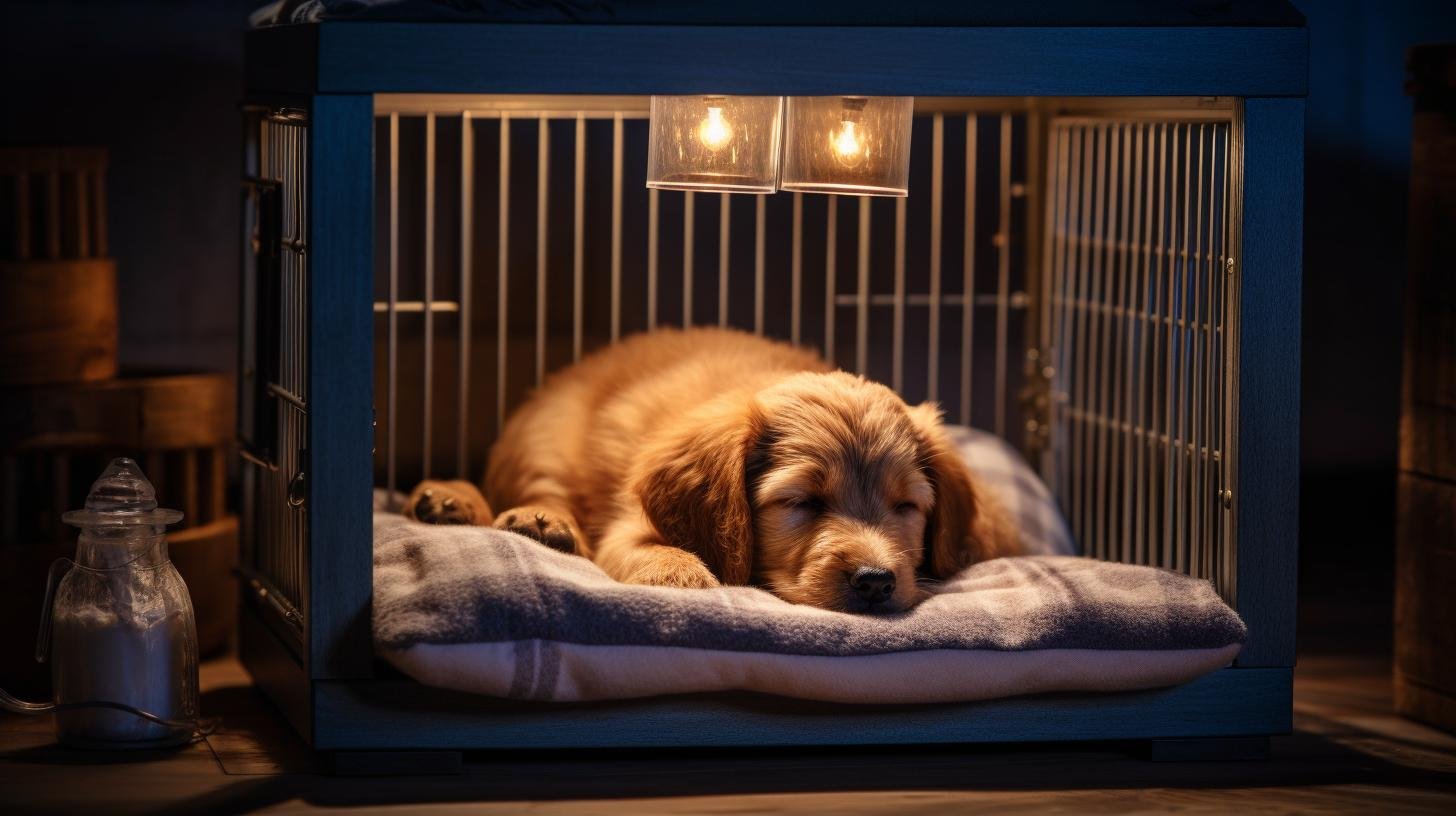Have you ever wondered why some exotic plants and flowers distil their potent nectar only at night? It’s a fascinating survival trick these botanical warriors have adopted to attract nocturnal pollinators – bats, insects, and birds – and ensure proliferation. This round-the-clock nectar production is a little bit like a hydration strategy some new puppy owners adopt, by leaving water in their little ones’ crate throughout the night.
But is this the best method to keep those affectionate, wide-eyed companions in top-notch playful health?
Oh, as a pet lover, I know this takes you into a swirl of questions. Should you be doing this? Can it put your puppy at risks? What is the best way to go about it? Hang on tight as we delve deeper to fetch the right answers for these concerns. With a combination of scientific evidence, expert opinion, vet advice, and compiled experiences of many fellow puppy parents, this article shall quench your thirst for reliable knowledge.
Let’s set the ball rolling with why water is such an important topic when it comes to puppies.
Just as humans, puppies’re mainly made up of water – about 80% of their growing bodies, to be precise. This small detail underpins numerous biological processes: temperature regulation, digestion, absorption, circulation, saliva production, and transportation of nutrients. So, it’s quite natural for the novice pet parents to ensure readily accessible water supply to their puppies, even at night.
But, here’s the curveball.
While hydration is crucial, puppies have a small bladder and poor bladder control, especially during their first few months. Therefore, unlimited access to water might lead to frequent urination, interrupting their – and potentially your – precious sleep time. Therefore, it’s no wonder why the query ‘Should I leave water in my puppy’s crate at night?’ occupies a pivotal spot in the long list of puppy-related questions of novice pet owners.
To be precise, the answer is not as black-and-white as it may seem, varying depending upon factors like the puppy’s age, health conditions, diet, breed, activity level, and even the climate. For instance, puppies fed exclusively on dry kibble, residing in hotter climates, or those that play hard might need more frequent water access, including the night-time availability.
But generally, veterinarians and pet experts agree that it isn’t necessary to leave water in your puppy’s crate at night. By the time they’re put into the crate for the night, they should already have had enough to drink for the day. In fact, a hard and fast rule in crate training new puppies is implementing a water schedule.
A quick chat with Dr. Katharine Kennedy, a professional vet with over 20 years in the field, offers some insights on this matter. She explains, “Most dogs are okay without access to water for six to eight hours throughout the night. They have evolved this way. Remember, managing crate water is not about limiting water intake, but scheduling it. It’s crucial to balance their hydration needs while preventing accidents inside the crate that may derail the puppy’s house training progression.”
So, what’s a good water schedule?
Typically, it’s recommended to remove your puppy’s water bowl approximately two hours before bedtime. This allows your puppy to drink throughout the day, then gives them enough time to relieve themselves before hitting the hay. However, if the puppy seems excessively thirsty or weather conditions demand, you must adjust this schedule wisely.
What if the puppy seems thirsty during the night?
If your puppy often wakes up thirsty, this might indicate an underlying health issue or inappropriate feeding schedule. Discussed ahead are steps to help ensure your little buddy stays comfortable overnight:
1. Properly time the final meal: A puppy’s last meal should be early enough to facilitate digestion, followed by a hydration break and potty time before sleep. This can help the puppy sleep comfortably throughout the night.
2. Pay attention to intense thirst: If your furry friend frequently wakes up thirsty during the night, consult your vet. Increased thirst might be indicative of medical conditions such as diabetes or kidney disease.
3. Make adjustments for climate and activity: If your puppy is highly active or your climate is particularly warm, it may be healthier to leave water with them during the night. Again, make this decision in consultation with your vet.
Thus, just like nocturnal plants releasing their nectar for survival, managing a water schedule for your puppy isn’t a random act; it’s a thoughtful strategy of balancing hydration needs and uninterrupted rest time for your puppy’s healthy growth.
Remember, the goal is to help your puppy have a good night’s sleep so he can wake up energized, full of life, and ready for another day of learning, playing, and strengthening bonds with you. So, just as you’d monitor a toddler’s drinking habit to balance hydration and adequate sleep, the water-in-crate conundrum needs an attentive, flexible, and nuanced approach. Keep communicating with your vet, monitor your puppy’s behavior and needs, and adjust as needed. After all, the joy of raising a healthy and happy puppy is all about decoding these small but significant details.
As you learn your puppy’s rhythms and develop a consistent routine, you’ll find a balance that suits both of you—much like the harmony and rhythm in nature.
